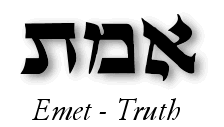Here is a pretty good list of lists of tech tools for teachers! Originally published at http://www.eschoolnews.com/2012/08/17/nine-useful-lists-for-educators/
Enjoy!
Ira
CEM Tweeters provide some of ed-tech’s best resource lists on getting connected and digital literacies
EducationWorld has a list of five must-follow users to help you get in the pinning groove. As part of Connected Educator Month
(CEM), social media-savvy teachers and education professionals are
using Twitter, blogs, and publications to get information out as quickly
and easily as possible, and are using lists in many ways.
Browsing CEM’s Twitter, #CE12, the editors at eSchool News have highlighted some of the most popular lists Tweeted, as well as some that may be most helpful to our readers.
From educator-recommended apps designed for specific subsets of 21st
century literacies to 14 of the best ed-tech Tweeters, and from the
best CEM speaker quotes to the 10 technology commandments for connected
learners, these lists are classroom-tested and educator-approved.
Have a list you consult or know of a list that’s popular among peers?
Be sure to provide your links and recommendations in the comment
section!
[In no particular order]
To celebrate CEM, the NYT asked every educator who has written a guest post for their publication to detail “one important thing you’ve learned from someone in your personal learning network” and “what one person, group, or organization would you recommend every educator add to his or her PLN?” The list provides more than 100 people, organizations, sites, and other resources readers can learn from, as well as shared insights on how to learn from them.
Adam Heckler, a twenty-something who works in ed-tech where he advises K12 schools on how they can better integrate technology into their environment, says he has a long commute to work and likes to use those 45 to 50 minutes to listen to some innovative and helpful ed-tech podcasts. From ISTE to EdReach, topics range from flipped learning to ELA, and much more. Heckler also has many more quick-hitting lists and discussions that can be found here.
Knowing who to follow on Twitter can be invaluable for educators—a fact that Educational Technology and Mobile Learning also realizes. In this list, these ed-tech Tweeters are among the most prominent in the field and their tweets can save time and energy. One of the Tweeters listed, Tom Whitby–a professor of education, founder of #edchat, the education PLN Ning, and the Linkedin group ‘Technology-using Professors’–is one of the main Tweeters on CEM and has provided many of these lists as well.
4. OnlineUniversities.com’s “Ten tech commandments for connected learners” and edutopia’s “Five tips for new teachers to become connected educators”
This list is useful when it comes to knowing what it means to be a connected educator. OnlineUniversities.com’s Justin Marquis Ph.D. pulls his commandments from Fractus Learning’s “The 10 (EdTech) Commandments” that he says have a lot to do with helping educators be successful in a connected educational setting; however, “as the focus of online learning should be on the students themselves, some tweaking…turns them into a handy guide for the successful connected learner in the digital age.”
Though OnlineUniversities.com focuses on educators, SmartBlog on Education focuses more on the student side of connected learning, understanding that “today’s students can communicate, collaborate, cooperate, and connect with the world in meaningful ways…” The blog explains that it’s up to the educator to support students in doing this effectively.
Following their advice for a connected students, SmartBlog on Education also provides a list that highlights what Linda Yollis—an elementary school teacher for more than 25 years—calls “meaningful ways to engage and motivate” young students. Yollis began her blog, Mrs. Yollis’ Classroom Blog, in 2008 to share activities with parents, and over time it has become a centerpiece for the classroom: students help manage the blog and are learning the basics of how to comment, and that audience matters.
7. Langwitches’
“21st century skills & literacies for iPads”
“21st century skills & literacies for iPads”
Langwitches, an education Flickr group, posted a straight-forward chart of education apps for specific skills/literacies. Literacies include: Information Literacy, Media Literacy, Network Literacy, Global Literacy, Create/Critical Thinking, and Communicate/Collaborate. Each skill/literacy has nine apps listed.
Though Pinterest may still be considered a great place to post wonderful recipes for peach cobbler, it’s also becoming a place for innovative educators to post thought-leading ideas. “The key is to follow others who actively use Pinterest to collect great classroom- and education-related resources and ideas,” says EducationWorld. “Who you follow really matters because it directly influence the quality of content you see when you visit Pinterest…we’ve put together a list of five must-follow users to help you get in the pinning groove.”
9. Stephanie Sandifer’s “Favorite quotes” from CEM
Sandifer, who runs the blog ‘Change Agency’ to write about “education reinvention, evolution, and revolution,” blogs almost once a day about CEM, providing a wrap-up of the day’s key take-aways from sessions and forums (she also provides great lists on other CEM education topics). In this post, Sandifer lists some of what she considers the most inspiring, or accurate, quotes from CEM leaders and participants.








